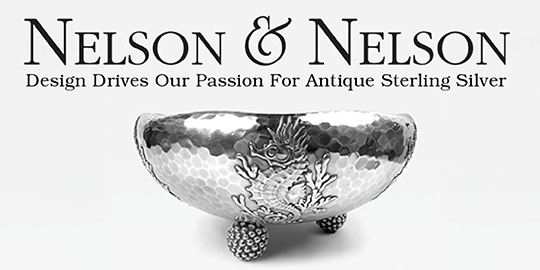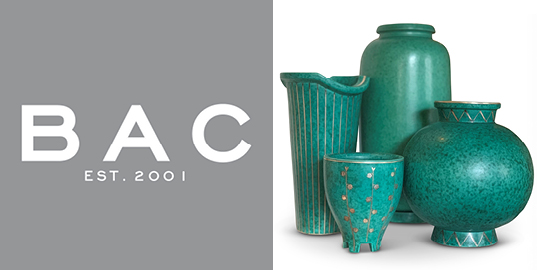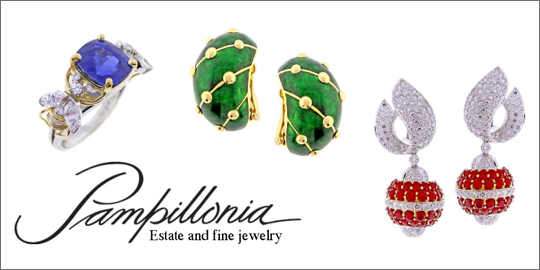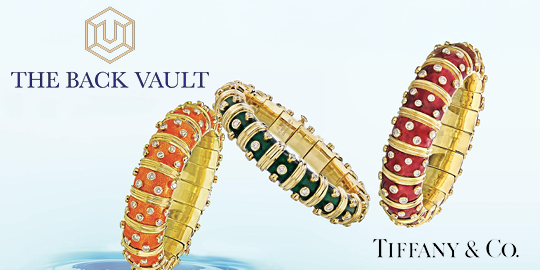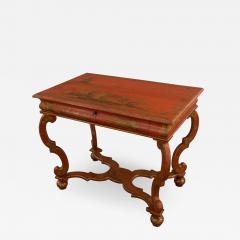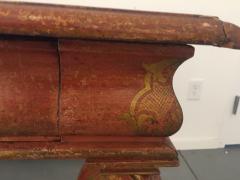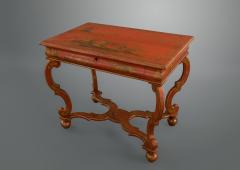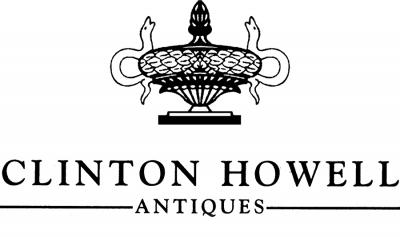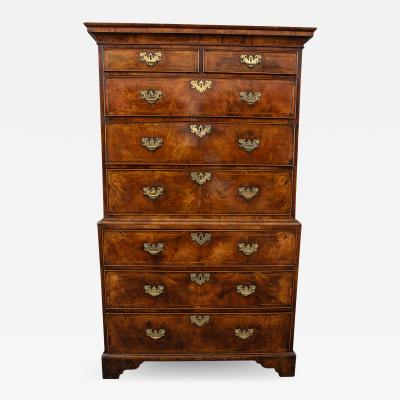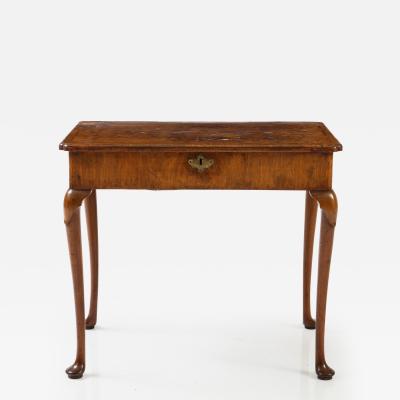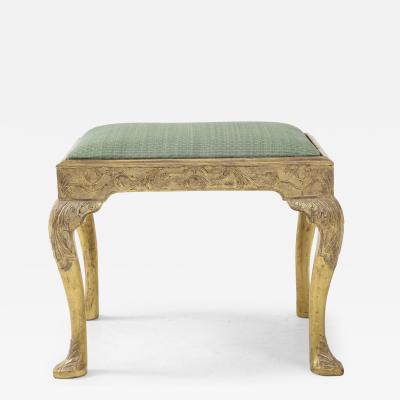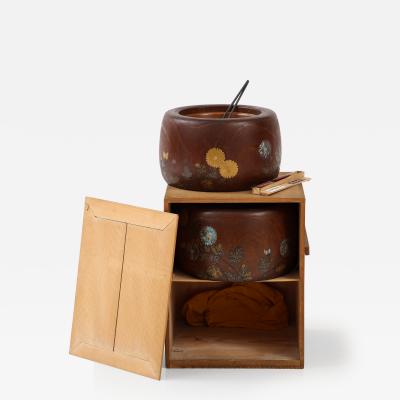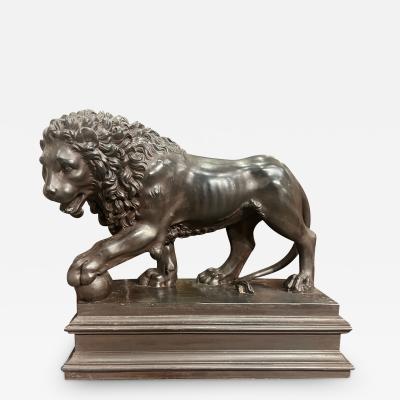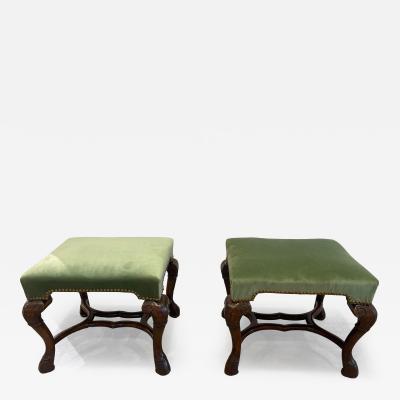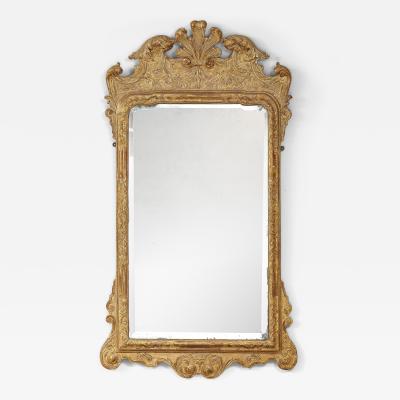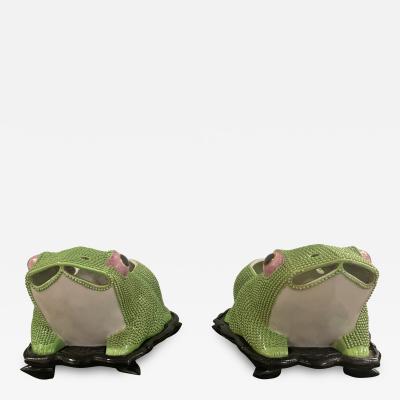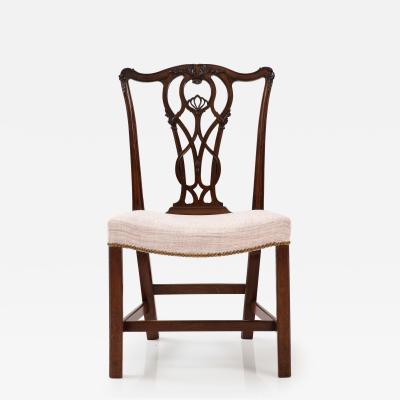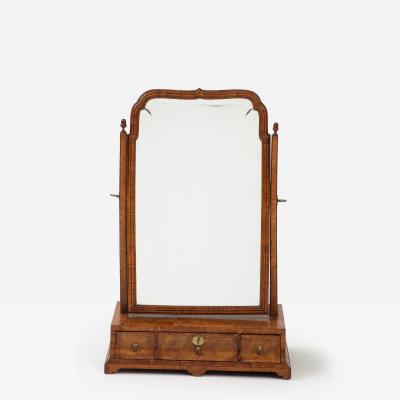Listings / Furniture / Tables / Center Tables
Charles II red japanned center table circa 1680.
-
Description
The rectangular red japanned top above single drawer, the faces of the carcass of convex form
above four scrolled legs connected by an x-frame stretcher terminating in bun feet.
The table is constructed throughout in pine with oak linings to the drawer, and directly relates to
a very well known “Bantam work” table at Ham House and commissioned by the Dysart Family,
Earls of Lauderdale prior to the inventory of the house in 1679.
The present table, as with the Ham House
table illustrated here, would have been
commissioned as part of a suite, including
the table, a mirror and a pair of torchieres
that would have occupied the space between
two windows. Very few full sets survive and
it is remarkable that the present table along
with the Ham House example have survived
in remarkably original condition. Although
the feet have been sympathetically replaced,
as is usual, the japanning remains
remarkably untouched and the quality of the
work is truly exceptional rivalling some
Asian lacquer work of the 17th century.
Predating Stalker and Parker’s manual A Treatise of Japanning, Varnishing and Gilding of 1688
the design source for the table decoration must have come directly from Asian examples,
possibly scrolls or screens.
Many European “Japanned” pieces of the 17th and 18th centuries displayed fanciful depictions of
Asian scenes and characters that tried to simulate Asian works but often failed to grasp the
narrative nature of Chinese painting.
A photograph of the current table was examined by Dr. David Barker, Senior Research Fellow of
the Muban Educational Trust, who concluded that the images to the table top did indeed have a
possible meaning in Chinese iconography, and therefore the Japanner responsible for decorating
this table most likely had access to original sources from China and was aware of the meaning of
the illustration. The pronunciation of Chinese characters may have multiple meanings or
homophones so, as in this case, what seems to be merely a decorative arrangement can have a
very specific meaning and intentions.
According to Barker (and to paraphrase) birds, some in cages, were a feature of late Ming letter
papers, the most famous being those of Wu Faxiang 1626 and Hu Zhengyan 1643/44.
The pine tree [song] (松) suggests that the main character situated next to the tree is a scholar/
official and the two birds above, swallows [yan] (燕) are a dual homophone for [yan] (晏)
meaning peace and [yan] (宴) meaning a banquet. Therefore, one can reasonably infer that the
elegant official/scholar is journeying to a peaceful banquet in the elegant building in the distance,
with the servants carrying the gift of a bird for the host.
The iconography is certainly in keeping with the times of both China and England. China had
gone through the transition from the Ming Dynasty to the early Qing Emperors and England was
just emerging from the devastation of the Civil War and the restoration of Charles II in 1660 so
the images promoting the desire for peace seem entirely appropriate for the time.
A review of the inventories of Ham House that appeared in the Furniture History Society Journal
in 1980 attributed the Ham House table to a possible Dutch maker, and given the anomalies to
the construction in the present example it is possible that this table could also be Dutch or Anglo-
Dutch.
English or Anglo-Dutch, Pre 1680 -
More Information
Documentation: Signed Period: Pre 18th Century Materials: Wood and European japanning Condition: Good. Creation Date: 1680 Styles / Movements: Charles II, Traditional Incollect Reference #: 376031 -
Dimensions
W. 38.5 in; H. 31.5 in; D. 24.5 in; W. 97.79 cm; H. 80.01 cm; D. 62.23 cm;
Message from Seller:
Clinton Howell Antiques is a New York City-based antique dealer in very fine English antique furniture and decorative objects, serving a world-wide clientele of collectors, designers and museums alike







